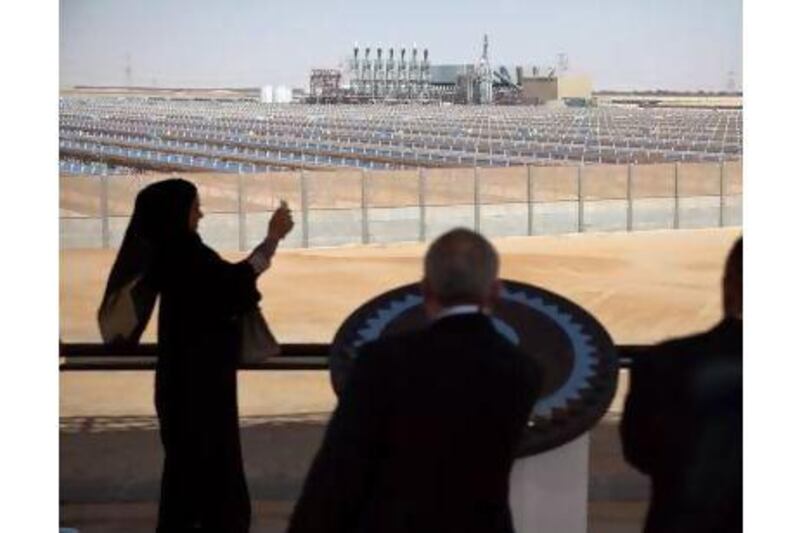Cyprus situation shows savings are vulnerable
I am writing in reference to Fury in Cyprus at bank savings grab (March 19).
The proposed seizing of between 6 and 10 per cent of depositor holdings in Cyprus as part of the attempt to save the euro will decimate whatever confidence remains in the euro zone's retail banking sector; a run on which must surely follow.
Last year, I spoke with someone from Ireland about the level of confidence the Irish should have in their bank deposits. I said that savings up to €100,000 (Dh475,000) were guaranteed. The Irish government has just said it will revoke that guarantee, so I apologise to that person.
In my youth, many elderly people did not trust banks and kept their money at home. This led to a spate of robberies where life savings were taken, often violently, from old people.
With the actions in Cyprus, it seems that neither putting money in the bank nor under the mattress offers any security.
David Daly, Dubai
Wage difference poses problems
Arif Mirza's ambition is laudable (Rich man to collect scrap, March 15), but I think it has problems.
It is nice to think that he will set a good example for other rich businessmen by living like a typical worker who earns just Dh1,000 a month. After the house rent and costs of food and travel are deducted, it is little more than a survival wage.
I have seen construction workers in Doha earning as little as Dh700 a month. The ambition of governments in this region to have their young nationals learn construction skills will face myriad problems while wages in the private sector are that low.
Peter Nixon, Abu Dhabi
Solar plant a step in right direction
Sheikh Khalifa launches Shams 1 (March 18) is welcome news.
I am a huge proponent of using more solar energy to diversify our energy production and lower carbon emissions.
This project is a step in the right direction. Concentrated solar power is an exciting technology that will be making large contributions in the future.
Kudos for some forward thinking and taking action to confront issues that are important to all of us.
Richard Fenneman, US
Bus drivers not always perfect
In reference to Call to put brakes on road bullies (March 17), I have noticed that some of the "rule-following" bus drivers do not stop at stop signs.
I live in Khalifa City A in Abu Dhabi, and I regularly have to watch out for school buses that drive through stop signs without looking or stopping.
Many bus drivers do not follow traffic rules, even though they have children on board.
Theresa Bushnell, Abu Dhabi
Your story is perhaps too sympathetic to bus drivers.
I do not remember any rule stating that you can stand on a hard shoulder or a bridge to pick up passengers; or any rule saying that you can tailgate, or drop passengers in a roundabout. Name withheld by request
British press won't be tamed by law
The political deal struck over British media laws(UK agrees on press regulation, March 19) will do nothing to change the status quo in that country.
A few years down the road, things will be back as they were. The fines of up to £1 million (Dh5.54 million) will do little; to have any effect, the penalty would have to at least five times this amount.
The reason: corporations take such fines into account when doing their risk assessment. The British press is no different.
David Hill, Switzerland
Blood diamonds still in circulation
I have a comment about Diamonds are forever in Dubai (March 18).
A blood diamond is any diamond that funds human rights violations, whereas "conflict diamonds" are defined as a "rough diamonds used by rebel movements or their allies to finance conflict aimed at undermining legitimate governments".
While the Kimberley Process bans trade in "conflict diamonds", blood diamonds that fund human rights violations by government forces are still allowed to contaminate the global market.
I would like to see the Kimberley Process broaden the definition of a "conflict diamond".
Cut-and-polished blood diamonds that fund crimes in Palestine are a particular problem, because Israel is a big player in the diamond market.
Sean Clinton, Ireland





